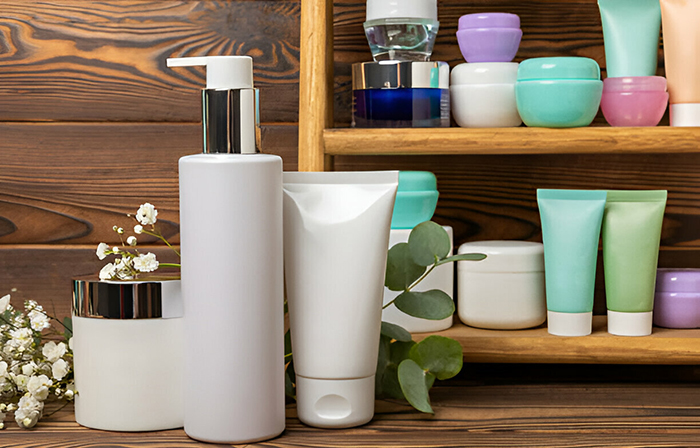How to Care for Sensitive Skin

Introduction: Understanding Sensitive Skin and the Challenges of Caring for It
In the world of beauty and skincare, the topic of “sensitive skin” poses a concern for many individuals due to the significant challenges they face in caring for it. Sensitive skin is characterized by its quick reaction to external factors over time, such as changes in weather or the use of cosmetic products.
It’s important to realize that sensitive skin is not a disease in itself, but rather a condition that requires special care and continuous attention. Caring for sensitive skin begins with understanding its nature and the factors that may trigger reactions. There are many factors that can contribute to skin sensitivity, including genetic factors, continuous exposure to the sun, and the use of improper products.
Despite the challenges you may face in caring for your sensitive skin, understanding its nature and proper handling can make things much easier. Caring for sensitive skin requires you to be cautious in choosing the products you use and to understand that your skin is unique and requires special care.
In this article, we will present to you some valuable tips and useful information that will help you better understand sensitive skin and how to care for it safely and effectively.
Causes of sensitive skin: Genetic, environmental, and allergic factors
Sensitive skin is a common issue that many people suffer from. It can be a result of various factors, including genetic, environmental, and allergic factors.
Firstly, genetic factors can be responsible for sensitive skin. Scientists believe that some individuals are born with more sensitive skin due to the genes inherited from their parents. For example, people who suffer from eczema or psoriasis may have genes that make their skin more prone to irritation.
Secondly, environmental factors such as wind, sun exposure, dryness, and sudden changes in temperature can cause sensitive skin. When exposed to these harsh conditions, the skin can become dry and cracked, making it more prone to irritation.
Thirdly, sensitive skin may result from an allergic reaction. When the skin reacts negatively to a particular substance, such as fragrances or chemicals in skincare products, it can lead to inflammation, itching, and redness.
To deal with sensitive skin, it’s best to steer clear of products containing harsh chemicals and strong fragrances. Instead, opt for skincare products specifically designed for sensitive skin, and try to minimize exposure to harsh environmental factors. Additionally, seeking advice and treatment from a dermatologist can be beneficial.
Aggravating factors for sensitive skin: External factors and chemical products
Introduction:
When discussing “sensitive skin,” we refer to a type of skin that reacts negatively to many external factors and chemical products. These factors can range from sudden climate changes, pollution, to even the beauty products we regularly use. In this section, we will explore some aggravating factors for sensitive skin and how we can effectively deal with them.
External Factors:
External factors are among the primary challenges faced by sensitive skin. Continuous exposure to sunlight, strong winds, and extreme cold can cause dryness, itching, and redness. Therefore, it is always recommended to protect the skin by using sun protection creams and moisturizers rich in vitamins and essential fatty acids.
Chemical Products:
Despite the significant role that beauty products play in skincare, some may contain chemicals that can increase skin sensitivity and cause irritation. Among these chemicals are parabens, alcohol, and synthetic fragrances. Therefore, it is preferable to seek out products that contain natural ingredients and are free from harsh chemicals.
Conclusion:
In conclusion, sensitive skin requires special care and continuous attention. The more you care for your skin and choose the right products, the better your chances of maintaining smooth and healthy skin. Therefore, make sure to identify your skin type and care for it properly.
Daily Skincare Routine for Sensitive Skin: Basic Steps and Suitable Products
Sensitive skin requires special care to maintain its health and beauty. Daily skincare for sensitive skin is key to keeping it fresh and avoiding irritation. In this article, we will explore the basic steps and suitable products for a sensitive skincare routine.
Firstly, it is essential to cleanse sensitive skin daily. Use fragrance-free and gentle cleansing products that won’t irritate sensitive skin. It is preferable to use products that contain natural and soothing ingredients.
Secondly, moisturizing sensitive skin is another essential step that cannot be ignored. Choose a lightweight and gentle moisturizer that contains natural moisturizing ingredients such as aloe vera or jojoba oil. Avoid moisturizers that contain alcohol or fragrances, as they can cause irritation to sensitive skin.
Thirdly, protecting sensitive skin from harmful UV rays is a crucial step. Use a sunscreen that provides protection from UV rays and is free from fragrances and harsh chemicals.
Lastly, always remember that sensitive skin needs rest and relaxation. Try to avoid stress and tension that can lead to skin irritation. Incorporate yoga or meditation into your daily routine to help maintain the health of sensitive skin.
In conclusion, caring for sensitive skin requires time and effort, but the results are worth it. Follow these tips and you will keep your sensitive skin soft, healthy, and beautiful.

Choosing Soothing Products: The Best Products to Calm and Soothe Sensitive Skin
In the world of beauty and skincare, sensitive skin poses a challenge for many. Choosing the right products for sensitive skin is crucial to maintaining its health and beauty. In this section, we will discuss the best products to calm and soothe sensitive skin.
Firstly, thermal water is one of the factors that helps soothe sensitive skin. It gently cleanses the skin without damaging its protective layer. Additionally, thermal water has anti-inflammatory properties that help reduce redness and irritation.
Secondly, hyaluronic acid creams are among the best products for soothing sensitive skin, as they moisturize and soften the skin. Hyaluronic acid has the ability to bind to water, which helps enhance hydration and freshness.
Thirdly, aloe vera products are an ideal choice for soothing sensitive skin. Aloe vera has anti-inflammatory and antioxidant properties that help soothe the skin and reduce irritation and redness.
Fourthly, natural oils such as jojoba oil and argan oil are effective options for soothing sensitive skin. These oils help nourish and moisturize the skin without causing clogging or sensitivity.
Finally, using fragrance-free and alcohol-free products is essential to avoid irritating sensitive skin. These products provide comfort and soothing to the skin without causing any sensitivity or allergies.
In conclusion, choosing the right products for sensitive skin is essential to maintain its health and beauty. Always remember that trial and error is the best way to determine what works well with your skin, and don’t hesitate to consult a dermatologist if you have any problems or questions.

Tips to Avoid Allergies: How to Choose Makeup and Skincare Products with Caution
If you suffer from sensitive skin, you’re not alone. Many people struggle with choosing makeup and skincare products that don’t cause allergies or irritations. However, there are tips that can help you avoid any negative reactions and maintain healthy, clean skin.
Firstly, make sure that the products you use are free from parabens, sulfates, and synthetic fragrances, as these ingredients may irritate sensitive skin. Instead, look for products that contain natural and gentle ingredients, such as aloe vera and green tea.
Secondly, make sure to test products before using them regularly. You can do this by applying a small amount of the product to a small area of the skin, then waiting for 24 hours to see if any reactions occur. If you don’t notice any negative changes, the product is likely safe to use.
Thirdly, remember that sensitive skin requires special care. Your skin should stay moisturized, but in the right way. Use lightweight, non-greasy moisturizers, and be sure to avoid direct exposure to sunlight and extreme cold, as both can lead to skin irritation.
In conclusion, always remember that sensitive skin requires greater attention and care. Listen to your body and learn what suits your skin. Ultimately, health and comfort are paramount.
Skincare for Sensitive Skin in Different Seasons: Adapting Your Routine to Weather Changes
Sensitive skin is one of the skin types that requires utmost care and attention in all seasons, as weather changes can significantly impact its health and beauty. Adapting your skincare routine to these changes is necessary to ensure that your skin remains smooth and healthy.
In winter, cold and dry weather can cause sensitive skin to crack and become dry. Therefore, it is recommended to increase the use of moisturizers and creams that contain nourishing and moisturizing ingredients, such as glycerin and shea butter.
In summer, sensitive skin may be prone to damage due to the scorching sun and high humidity. It’s important to use a good quality sunscreen and avoid direct exposure to the sun during peak hours. Additionally, skincare products containing skin-soothing ingredients such as aloe vera and green tea can be used.
In spring and autumn, sensitive skin can be more prone to allergies and irritation due to sudden changes in weather. In this case, products containing soothing and anti-inflammatory ingredients such as chamomile and honey can be used.
In conclusion, sensitive skin requires a lot of care and attention throughout the year. It’s essential to adapt your skincare routine to weather changes to ensure its health and beauty.
Protection from Irritations: How to Shield Your Skin from Common Irritants like Sun Exposure
In the next section of the article, we will delve into the topic of “Protection from Irritations: How to Shield Your Skin from Common Irritants like Sun Exposure,” which is of great importance to many, especially those with sensitive skin.
Sensitive skin is more prone to irritation and damage from excessive sun exposure. Therefore, it is essential for us to be aware of how to maintain skin health and protect it from the effects of various environmental factors.
First and foremost, regular use of sunscreen is crucial. Doctors generally recommend daily application of sunscreen with a minimum SPF of 30, even on cloudy days.
Secondly, we should pay attention to daily moisturizing. Moisturizing helps enhance the skin’s natural barrier, which helps retain moisture and protect against irritations. Use a fragrance-free and alcohol-free moisturizer to avoid irritating sensitive skin.
Thirdly, avoid products that contain ingredients that may cause skin irritation, such as synthetic fragrances and parabens.
Fourthly, make sure to cleanse your skin gently. Use mild, soap-free cleansing products, and avoid scrubbing the skin vigorously.
In conclusion, make sure to follow the proper skincare routine for your skin type, which includes cleansing, moisturizing, and sun protection. Daily care for sensitive skin can be challenging, but with practice and patience, it will become a natural process and a part of your daily routine.
Treatment for sensitivity and irritations often involves using soothing products and natural remedies.
If you’re dealing with sensitive skin, the pain and irritation caused by using the wrong products can be frustrating. However, don’t worry, there are many natural solutions and soothing products that can help you control and calm your skin sensitivity.
Soothing products like aloe vera creams and green tea contain natural ingredients that help calm irritated and sensitive skin. Additionally, using natural oils such as sweet almond oil and jojoba oil can be effective in moisturizing the skin and reducing itching and irritation.
However, we must always remember that every skin is unique, and what works well for some may not work for others. That’s why it’s always best to gradually try out products, starting with small amounts to ensure that your skin reacts well to them.
In addition to using soothing products, some daily habits can also help alleviate sensitivity and irritation. For example, avoiding bathing with very hot water, as it can increase skin dryness. It’s also advisable to stay away from products containing harsh chemicals or fragrances, as they can increase skin sensitivity.
In the end, always remember that sensitive skin requires a lot of care and attention. With some patience and experimentation, you can find the treatments and products that work best for your skin.
Proper nutrition for sensitive skin: Beneficial foods and dietary supplements
Sensitive skin faces many environmental and biological challenges that can lead to its deterioration, but did you know that proper nutrition can be the solution? Foods rich in vitamins, minerals, and fatty acids are essential for your skin’s health and for resisting irritation and sensitivity.
Firstly, fruits and vegetables rich in vitamins such as oranges, carrots, potatoes, and spinach are among the most beneficial foods for sensitive skin. These foods contain vitamin C, which fights oxidation and enhances collagen production, a protein that maintains skin elasticity and health.
Secondly, foods rich in omega-3 fatty acids such as fish, walnuts, and seeds can help strengthen the skin barrier, reduce inflammation, and sensitivity. Omega-3 also reduces skin dryness and improves its appearance.
Thirdly, focusing on consuming foods rich in zinc and selenium such as meats, eggs, and whole grains can also help improve your skin’s health. Zinc helps control oil and reduce irritation, while selenium protects the skin from damage caused by sunlight.
In addition to healthy foods, dietary supplements can help improve your skin health. Multivitamin supplements, probiotics, and fatty acids can be beneficial in strengthening the skin and reducing sensitivity.
In conclusion, remember that sensitive skin requires special care, and proper nutrition is an important part of this care. So, choose foods and dietary supplements that promote your skin’s health and maintain its freshness.
Expert Consultation: The Role of Skin Experts in Treating and Improving the Health of Sensitive Skin
Under the title “Expert Consultation: The Role of Skin Experts in Treating and Improving the Health of Sensitive Skin,” we provide you with a direct insight into the world of skincare and the importance of communicating with professionals when it comes to sensitive skin.
Sensitive skin poses a challenge for many people. Not only is it easily affected by environmental factors such as the sun and wind, but it can also react negatively to ordinary skincare products. This is where skin experts come in, as they can identify detailed information about your skin type and the potential issues it may face.
Experts are knowledgeable about the ingredients and products that work well with sensitive skin and those that should be avoided. By assessing your skin condition and listening to your concerns and goals, they can provide personalized recommendations for skincare.
Expert-directed treatments may range from creams and ointments to more advanced medical interventions. The choice of treatment will be based on your current skin condition and any health or beauty goals you may have.
In the end, seeking the assistance of skincare experts to care for sensitive skin can be a crucial step towards achieving healthy and radiant skin. They can provide valuable advice and guidance that you won’t find anywhere else. So, don’t hesitate to reach out to a skincare expert if your skin is sensitive and in need of special care.
Caring for Sensitive Skin Naturally: Using Natural Ingredients to Improve Skin Health
In the world of beauty and skincare, sensitive skin can be a significant challenge. However, with the use of natural methods, you can improve your skin’s health and restore its freshness and radiance. Caring for sensitive skin often requires a focus on natural ingredients and a continuous avoidance of harsh chemicals.
Natural herbs, such as chamomile and aloe vera, are wonderful ingredients for sensitive skin. These ingredients work to soothe the skin, reduce irritation, and provide deep hydration. Additionally, natural oils, such as sweet almond oil and jojoba oil, can be used to nourish the skin and improve its elasticity.
Furthermore, eating a healthy diet and drinking enough water can be key to maintaining sensitive skin. Fruits and vegetables rich in antioxidants, such as oranges and berries, can help strengthen the skin and maintain its hydration.
In conclusion, caring for sensitive skin can be challenging, but by consciously choosing natural ingredients and focusing on a healthy lifestyle, you can achieve a radiant and healthy complexion. Nature provides us with everything we need to maintain healthy and beautiful skin.
Caring for Sensitive Skin During Pregnancy: Tips for Pregnant Women to Safely Care for Their Skin
During pregnancy, sensitive skin is more prone to changes due to hormonal fluctuations. Pregnant women may notice their skin becoming drier, oilier, or even developing some dark spots. Therefore, caring for sensitive skin is of utmost importance during this period.
Firstly, it’s essential to focus on daily moisturization. Use moisturizing creams specially designed for sensitive skin, containing natural ingredients and free from synthetic fragrances that may cause skin irritation. Also, don’t forget to moisturize your lips and hands, which may become drier during pregnancy.
Secondly, using sunscreen is essential even on cloudy days. Sensitive skin may be more susceptible to sun damage during pregnancy, so choose a sunscreen free from harsh chemicals.
Thirdly, follow a healthy diet, as the food you consume can greatly affect your skin’s health. Try to eat plenty of fruits and vegetables rich in vitamins and minerals that help maintain skin’s freshness.
Fourthly, try to reduce stress as much as possible. Stress can exacerbate skin problems, so choose activities that help you relax and unwind.
In the end, remember that every woman is different, and what may work well for one woman’s skin may not be the ideal solution for you. Therefore, be sure to experiment and search for the routine that suits your sensitive skin. Most importantly, enjoy this special time in your life.
Conclusion: The Importance of Consistency in Sensitive Skincare Routine and Its Positive Impact on Appearance and Confidence
Under the title “Conclusion: The Importance of Consistency in Sensitive Skincare Routine and Its Positive Impact on Appearance and Confidence,” we would like to emphasize the significance of this topic related to sensitive skin.
Sensitive skin, as the name suggests, requires special and meticulous care. It is not enough to just use skincare products; rather, the way they are used should be correct and consistent. Skincare is not just a daily habit; it is a daily journey that requires patience and persistence.
Continuing with a sensitive skincare routine means dedicating time to caring for your health and beauty. This routine can have a tremendous positive impact not only on your appearance but also on your self-confidence. With consistent care for your skin, you will feel comfortable and confident in your own skin, meaning you will feel confident in yourself.
However, we must remember that every skin responds differently to products and treatments. Therefore, continuing with a skincare routine also means experimenting and learning until you find what works best for your sensitive skin.
In conclusion, sensitive skin requires special care and a consistent skincare routine. By continuing with this routine, you can maintain the health of your skin and feel confident in your appearance.
